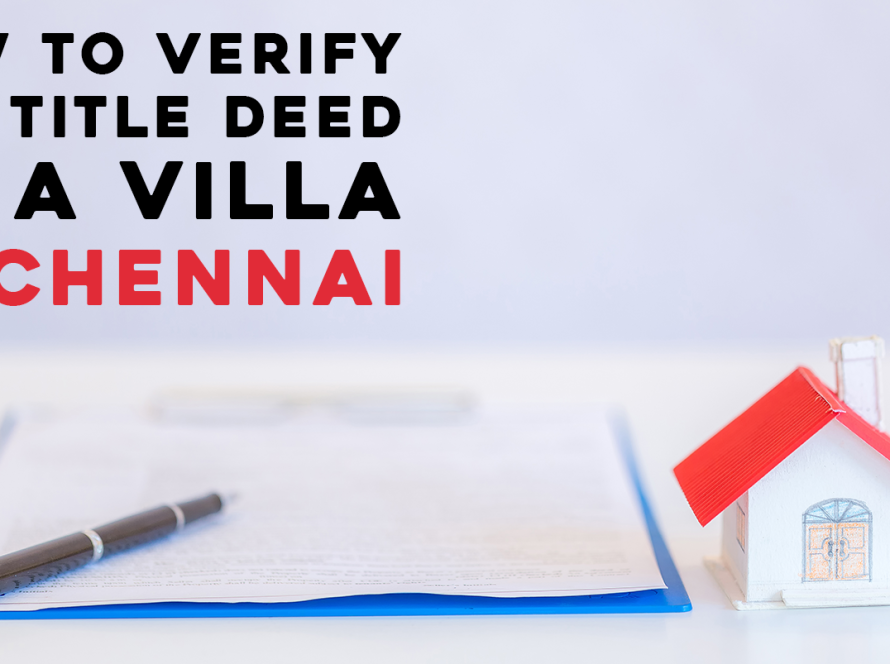Table of Contents
In Tamil Nadu, the Villangam Certificate—commonly referred to as the Encumbrance Certificate (EC)—is an important document that helps confirm the legal standing of a property. Whether you’re buying a piece of land, applying for a housing loan, or getting ready to sell your property, this certificate gives you peace of mind by proving that the land is free from legal issues, unpaid loans, or ownership disputes.
In this guide, we’ll walk you through what a Villangam Certificate is, why it matters, and how you can apply for one—both online and in person.
What Is a Villangam Certificate?
A Villangam Certificate is an official document you can get from the local Sub-Registrar’s Office in Tamil Nadu. It keeps a clear record of all registered transactions linked to a property—this includes sales, mortgages, leases, and even gift deeds. By showing this history, the certificate helps confirm that the property doesn’t carry any legal or financial burdens. It’s one of the most reliable ways to make sure everything is in order before moving ahead with any property deal.
Why Is a Villangam Certificate Important?
Whether you’re planning to buy your dream villa or invest in land, ensuring the property has a clean legal record is non-negotiable. That’s where the Villangam Certificate, or Encumbrance Certificate, plays a crucial role.
Here’s why it matters:
Legal Assurance
The certificate acts as solid proof that the property has a clear title—meaning it’s not involved in any legal disputes or court cases.
Helps with Loan Approvals
Planning to finance your purchase through a bank or financial institution? A Villangam Certificate is one of the first documents they’ll ask for, as it shows that there are no pending loans or liabilities on the property.
Essential for Property Transactions
Whether you’re buying or selling, this certificate is a key requirement. It ensures that both parties are clear about the property’s legal status, making the transaction transparent and trustworthy.
Government Subsidies & Schemes
Many housing or agricultural subsidies require this certificate to confirm ownership and legal clarity.
At VNCT Global, we handle the heavy lifting for you. All our villas—whether it’s in Chennai Palm Beach community or the Coimbatore villa projects—come with a legally verified Villangam Certificate. So, when you buy from us, you can rest assured that the property is clear, compliant, and safe.
How to Apply for a Villangam Certificate Online in Tamil Nadu
Applying for a Villangam Certificate has become much easier, thanks to the digital services offered by the Tamil Nadu government. You can now complete the entire process online through the official TNREGINET portal without stepping into an office.
Step-by-Step Guide to Apply Online
1. Create an Account
Head to tnreginet.gov.in, and sign up or log in to your existing account.
2. Access E-Services
Click on the “E-Services” tab in the top menu and select Encumbrance Certificate from the options.
3. Choose the Certificate Type
- Select EC if you want a detailed record of past property transactions
- Choose Nil EC if the property hasn’t been involved in any transactions during the specified period.
4. Enter Property Details
Fill in accurate information like the district, zone, Sub-Registrar Office (SRO), survey number, and the date range for which the certificate is required.
5. Submit the Application
Double-check your entries and submit the form.
6. Pay the Fee
Make the payment securely using UPI, debit/credit card, or net banking.
7. Download the Certificate
Once processed (usually within 3 to 7 working days), you can download the digitally signed Villangam Certificate directly from the portal.
💡 At VNCT Global, we simplify this entire process for you. Every villa we offer comes with all legal documents—including the Villangam Certificate—already verified by our in-house legal team. This means you won’t have to deal with paperwork or long wait times. Our goal is to make your home-buying journey smooth, secure, and stress-free.
Check Here: Best Villas in Coimbatore
Prefer Doing Things the Traditional Way? Here’s the Offline Process
If you’re more comfortable handling things face-to-face—or if internet access is limited in your area—you can still apply for a Villangam Certificate the old-fashioned way by visiting your local Sub-Registrar Office (SRO).
Step-by-Step Guide to Apply Offline:
1. Visit the Sub-Registrar Office (SRO)
Go to the SRO that has jurisdiction over the property you’re inquiring about.
2. Request Form 22
Ask for Form 22 at the counter. Fill it out carefully with all relevant personal and property details.
3. Attach the Necessary Documents
Make sure to include copies of the following:
- The property document (e.g., sale deed, gift deed)
- Valid identity proof (Aadhaar, PAN card, etc.)
- Recent address proof (electricity bill, voter ID, etc.)
4. Submit the Application and Pay the Fee
Hand over the completed form and required documents at the counter. Pay the prescribed fee as per your certificate request.
5. Get Your Acknowledgment Slip
Once submitted, you’ll receive a reference slip or acknowledgment number, which you can use to follow up on your application.
🏡 At VNCT Global, we take the hassle out of paperwork. Our team works directly with the Sub-Registrar Offices to make sure all property documents—including the Villangam Certificate—are processed correctly and on time. When you buy a villa from VNCT, you get more than just a beautiful home—you get legal peace of mind, too.
Check Here: Best Villas in Madurai
Documents Required for Villangam Certificate Application
1.Property Documents
You’ll need a copy of the registered sale deed, gift deed, or partition deed related to the property.
2. ID Proof
Valid identification such as your Aadhaar card, PAN card, voter ID, or passport.
3. Address Proof
Proof of your current address—this could be a utility bill, bank statement, or even a rental agreement.
4. Additional Supporting Documents
- A copy of any previously issued Villangam Certificate
- Land tax receipts
- Relevant survey numbers
How to Track Your Villangam Certificate Application
Once you’ve submitted your application—whether online or offline—it’s important to keep an eye on its progress. Here’s how you can track the status:
Tracking Online (via TNREGINET Portal)
- Go to tnreginet.gov.in.
- Click on the “E-Services” tab.
- Select “Encumbrance Certificate” and then click on “Track Application”.
- Enter your application reference number to check the current status.
Contact and Support
Helpdesk Support
Phone: 044-24640160
Email: helpdesk@tnreginet.net
Hours:
Monday–Friday: 8 AM–8 PM
Saturday: 10 AM–5 PM
Note: Support available in Tamil and English
(FAQ) on Villangam Certificate (Encumbrance Certificate) in Tamil Nadu
What is a Villangam Certificate in Tamil Nadu?
A Villangam Certificate, also known as the Encumbrance Certificate (EC), is an official record issued by the Sub-Registrar’s Office. It shows all registered transactions—such as sales, mortgages, or leases—linked to a property. This helps confirm that the land is free from legal disputes, loans, or financial liabilities
Why is the Villangam Certificate important for property buyers?
The certificate gives buyers peace of mind by ensuring the property has a clean legal history. It is required when purchasing land, applying for a housing loan, or selling a property. Without a Villangam Certificate, buyers risk running into ownership disputes or hidden liabilities.
How can I apply for a Villangam Certificate online in Tamil Nadu?
You can apply online through the TNREGINET portal (tnreginet.gov.in). Simply log in, select Encumbrance Certificate, enter property details, pay the fee, and download your EC within 3–7 working days.
Can I still apply for a Villangam Certificate offline?
Yes. You can visit your local Sub-Registrar Office (SRO), fill out Form 22, attach property and ID documents, pay the fee, and collect your acknowledgment slip. The certificate will be issued after verification.
What documents are required to get a Villangam Certificate?
1. Copy of property documents (sale deed, gift deed, partition deed, etc.)
2. Valid ID proof (Aadhaar, PAN, Passport, Voter ID)
3. Address proof (utility bill, bank statement, voter ID, etc.)
4. Land tax receipts or previous Villangam Certificate (if available)
How long does it take to receive the certificate?
If you apply online, the certificate is usually processed within 3–7 working days. Offline applications may take a little longer depending on the workload of the Sub-Registrar’s Office.
Is the Villangam Certificate required for housing loans?
Yes. Banks and financial institutions ask for a Villangam Certificate before approving a loan, as it confirms there are no outstanding mortgages or legal disputes on the property.
Who provides the Villangam Certificate?
The Villangam Certificate is issued by the Sub-Registrar Office (SRO) that has jurisdiction over the property.
Do all properties purchased from VNCT Global come with a Villangam Certificate?
Absolutely. At VNCT Global, every villawhether in Chennai’s Palm Beach project, Coimbatore’s luxury villa communities, or Madurai’s premium residences—comes with a legally verified Villangam Certificate. Our in-house legal team ensures that all paperwork, including EC, is clear and compliant, so buyers enjoy a stress-free ownership experience.
How can I track my Villangam Certificate application online?
1. Visit tnreginet.gov.in
2. Go to E-Services → Encumbrance Certificate → Track Application
3. Enter your reference number to view the application status





